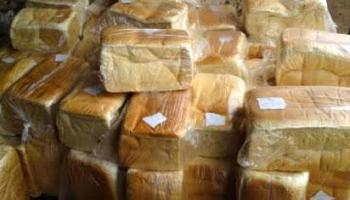
Stakeholders in the coconut value chain in Lagos State have called on the Nigeria Institute for Oil-Palm Research (NIFOR) and other research institutes to conduct continuous research on improved coconut varieties.
They made the resolution on Tuesday at the end of one-day Coconut Value Chain Stakeholders’ Forum at the Lagos Chamber of Commerce and Industry (LCCI) Conference and Exhibition Centre, Lagos.
The forum was organised by the Lagos State Ministry of Agriculture, in collaboration with the Lagos State Coconut Development Authority (LASCODA).
They said the research should reduce the gestation period from four years to one year to attract more investors into the value chain.
Theme of the forum was: “Addressing the Bottlenecks in the Coconut Value Chain to Ensure Sustainable Development in a 21st Century Economy.”
The State Commissioner for Agriculture, Ms Abisola Olusanya, presented the 19-point resolution at the end of the forum.
The resolution included the need to encourage intercropping with other arable crops such as pineapple, cotton, maize and soya beans to ensure quick returns and the need to rebrand coconut in order to attract youths to the value chain.
“Provide an enabling environment for Public Private Partnership with the private sector and other individuals.
“Encourage planting of coconut tree in our homes and environment and establishment of tissue culture laboratory for growing viable planting materials.
“Collaboration between NIFOR and LASCODA in providing planting materials; trade issues and land issues can be facilitated by the Federal Ministry of Industry, Trade and Investment and partners and increase sensitisation on the health, economic and environmental benefits of coconut,” Olusanya said.
She said stakeholders called for a strong partnership with the Nigeria Agribusiness and Agro-Industry Development Initiative for the development of the value chain; increased daily consumption of coconut and the setting up of a committee for the replacement of old coconut palms.
Olusanya said they urged families with land to allocate their lands through an MOU for the production of coconut; called on the Lagos State University Research Institute to work with NIFOR on research in the production of coconut as well as the identification of key entry points of coconut into the country.
The commissioner said that they also called for a closed-door meeting with the Customs and other security agencies to proffer a sustainable solution to the challenges of border transportation.
“To also conduct a baseline study of the entire value chain to understand the operations within the coconut Industry to ensure ease of doing business; synergy among MDAs in the coconut value chain development.
“Rehabilitation of the coastal line through partnership with the private sector and establishment of a standard operating procedure on the importation of coconut,” she said.
According to her, the state government, has in its plan this year, to establish the Coconut Processing Factory in Badagry in conjunction with the private sector.
“We have thrown it open so that private investors who have seen the potentials in coconut can partner with us and invest.
“We have a budgetary allocation to work with, the private sector should also come with what they have and we will partner together in establishing this,” Olusanya said.
In his remarks, the Deputy Director, Federal Ministry of Industry, Trade and Investment, Kaura Irimiya, said the Federal Government had turned its attention from oil to non-oil sector.
Irimiya, who represented the Permanent Secretary in the Ministry, said the country had neglected the crop for too long in spite of the potential in the country.
He said the government had endorsed a six-year programme tagged, COSIN (Coconut Sufficiency in Nigeria), championed by the National Association of Coconut Producers, Processors and Marketers in Nigeria (NAPPCOPMA).
Also, Ben Ukaffah, Director, Training in the Ministry, said other countries were making huge earnings from coconut, adding that Indonesia was now the largest producer of coconut, followed by Philippines and India.
“If you check the major producers of coconut, Africa is not one; we are just managing to produce a little over 300,000 metric tons when Indonesia is already producing 17.3 million.
“We need to step up. There is global competitiveness and it is projected that by 2026, the global coconut earning will hit about 31billion dollars.
“Nigeria should key into this global competitiveness so that we can generate some foreign exchange from coconut,” he said.
Earlier, Hakeem Adeniji, the Permanent Secretary, Lagos State Ministry of Agriculture, said the state government was ready to encourage commercialisation of coconut for both local and export markets.
Adeniji reiterated the commitment of the state government to support coconut farmers, processors, marketers, haulage operators, producers, among others, on food security, jobs and wealth creation and tourism.
“Seventy per cent of the total production from Nigeria is produced in Lagos State and ranks Nigeria 19th in the World Coconut producing Countries.
“In addition, close to 80 per cent of the coconut value chain activities, especially in the area of supply of improved seedlings to Commercial Coconut Growers in other 26 Coconut producing States of Nigeria is currently being driven from and by Lagos State.
“It has about three million trees with annual production of 200 million husked nuts, while about 20,000 small scale farming families derive their livelihood from it and the number increases daily,” he said.



